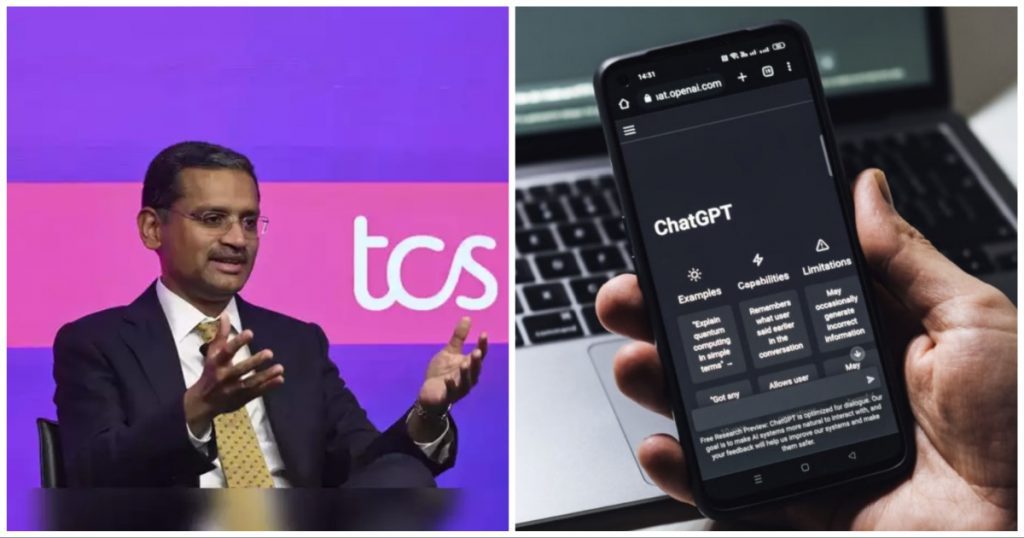ChatGPT might’ve already taken the world by storm with its power-packed features, but an Indian company is creating a home-grown alternative.
TCS is building its own ChatGPT equivalent to be used for enterprise code generation, the company’s chief operating officer N Ganapathy Subramaniam has said. The project, which is at a very initial stage right now, is looking to harness the vast internal code, data and resources that the TCS has accumulated. The solution will be built through in-house algorithms that use large language modelling functions similar to generative artificial intelligence (AI) chatbots such as ChatGPT, but for enterprise code generation. TCS’s arch rival Infosys had previously invested in ChatGPT’s parent company all the way back in 2016.

“The way we look at it, it (generative AI) uses past code, data and experience to learn,” TCS COO N Subramaniam told ET. “And over the many years that TCS has been in business, I can use all of my knowledge as a base. So, if that technology uses and generates code that I have taught the algorithm using TCS proprietary data, then the outcome is something that I am willing to license.”
It could make sense for TCS to build its own ChatGPT equivalent. ChatGPT has demonstrated itself to be extremely capable in writing code, and is able to create entire websites and programs in seconds. But all the data and code generated by ChatGPT is also accessible to ChatGPT’s parent company, OpenAI. These concerns recently promoted Samsung to ban its employees from using ChatGPT over fears of the company leaking confidential code to OpenAI.
As such, TCS too will likely not be able to use ChatGPT to write its code for clients, but would like to have an in-house product that performs a similar service. However it wouldn’t be straightforward for TCS to create a ChatGPT alternative — OpenAI employed the world’s best research scientists, and invested billions of dollars over several years to come up with its breakthrough product. Other alternatives, such as Google’s Bard and several open-source LLMs have sprung up in recent times, but they aren’t quite as sophisticated as ChatGPT. TCS will need to summon all its technical skills and study open source alternatives to come up with a reliable ChatGPT alternative.
And it’s perhaps existential for a company like TCS to come up withits own version of ChatGPT. Programs like ChatGPT will drastically reduce the costs of writing code in the coming years, and this could hurt the margins of service companies like TCS. TCS, for its part, will need to have its own product that generates code that it will be able to ship and supply to firms around the world. It remains to be seen how successful TCS’s ChatGPT alternative proves to be, but it shows that now some of India’s most conservative firms are also waking up to the challenges posed by generative AI.